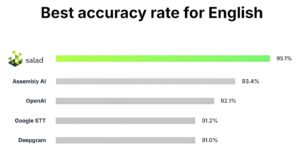Permission Restricted

The Impact of Young People on Africa’s AI Landscape
Artificial Intelligence (AI) is transforming various sectors across the globe, and Africa is no exception. Young people across the continent are playing a crucial role in shaping the AI landscape through innovation, creativity, and entrepreneurial spirit. This article explores how the youth are driving advancements in AI technology in Africa and the implications for the continent’s future.
The Rise of AI in Africa
Recent years have seen a significant rise in AI-related initiatives in Africa, driven largely by young innovators. With a young population—over 60% of Africans are under the age of 25—there’s a vibrant community that is enthusiastic about technology and its potential. This demographic’s engagement in AI covers various fields, from agriculture to health care and beyond.
Key Factors Contributing to AI Growth in Africa:
Increased Access to Technology: With the expansion of internet connectivity and mobile technology, more young people in Africa have access to necessary tools for learning and experimentation in AI.
Educational Opportunities: The growth of online courses and coding boot camps has made it easier for young people to acquire AI skills. Platforms like Coursera, Udacity, and local institutions now often offer courses specifically tailored to the African context.
- Government and NGO Support: Many governments and non-profit organizations are introducing programs aimed at supporting tech startups and providing funding for innovative AI projects.
Key Areas of Innovation
Africa is witnessing innovation in several key areas where AI is being integrated into existing sectors:
1. Agriculture
AI is being employed to improve crop yields and optimize farming practices. Young agricultural scientists and tech entrepreneurs use AI-driven data analytics to forecast weather patterns, monitor soil health, and enhance supply chain management.
2. Healthcare
Young developers are creating AI solutions to tackle health issues in Africa. For example, AI algorithms are used to analyze medical data, improve diagnostics through image recognition, and manage health resources efficiently.
3. Education
AI-powered tools are providing personalized learning experiences for students. Young innovators are designing applications that adapt to the learning pace and styles of learners, which is critical in a continent where education resources are limited.
Challenges Facing Young Innovators
While young people are making substantial strides in AI, they face various challenges:
Limited Funding: Many startups struggle to secure investment, which can hinder their growth and ability to innovate.
Infrastructure Issues: Inadequate technological infrastructure can affect the scalability of their solutions.
- Regulatory Hurdles: Navigating the legal frameworks in different countries can be complicated for startups focused on AI.
The Role of Collaboration
Collaborative efforts play a vital role in fostering innovation in Africa’s AI sector. Partnerships between startups, established tech companies, and educational institutions can lead to shared resources, expertise, and mentorship opportunities. Additionally, regional partnerships can lead to more cohesive growth strategies that benefit multiple nations and sectors.
Future Trends in Africa’s AI Journey
Looking forward, the future of AI in Africa is promising, particularly as the youth continue to engage in tech-related fields. We are likely to see:
Increased Investment: As more venture capitalists focus on emerging markets, funding for AI projects in Africa could grow significantly.
Expansion of AI Applications: New applications of AI in sectors such as finance, transportation, and environmental management will continue to emerge.
- Focus on Ethical AI: There is a growing conversation around the ethical use of AI, particularly in ensuring that technologies are developed and deployed in ways that benefit all segments of society.
The involvement of young people’s creativity and problem-solving skills is crucial for steering Africa towards a future where AI can have a meaningful impact on both local and global challenges. As this landscape continues to evolve, the collaboration between various stakeholders will be key to harnessing the full potential of AI technologies across the continent.






